Rest day Mumbai - Day 1 (Part 1)
Today we booked a Local Transport and Dabbawallah tour with a local non-profit / social impact tour company called Reality Tours and Travel. This is a great company and they are very involved in giving back to the community through their tours. 80% of their tour profits and 100% of merchandise sales go directly to Reality Gives, their sister charity, funding quality educational initiatives that drive. positive change within their local communities.
Today’s tour description: “ Discover Mumbai’s spirit on our Local Transport & Dabbawallah Tour. Ride the famous suburban train, hop on a classic red bus, cruise around town in a typical black and yellow taxi and look on as millions of Mumbai’s working class head out in the morning. We will discover Mumbai beyond the typical tourist sites; we will see a number of different markets and the world-famous Dabbawallahs (the workers of India’s intricate lunch delivery system). This view of the Maximum City will give you an idea of the struggles and challenges felt by the working class, as well as their unconquerable spirit”
This was a very interesting and informative tour. There are over 24 million people living in Mumbai. 18% of them are actually local to the area, the rest of the populace are transitory, coming to the city to work and going back to their villages.
Our first visit of the day was to the train station. The doors on the train cars never close. Five people die every day from accidents and 20 people are injured every day. In Mumbai, 8 million people ride the train every day.
During the rush hour times, there are 600-700 people per train carriage. The “normal” capacity for each train carriage is 85 people. The rush hour on the train goes from North to South in the morning and then from South to North in the afternoon.
There are separate train carriages for women if they choose to ride that way.
The Mumbai Train station known as Chhatrapati Shivaji Termins is a historic retail way terminus and is a UNESCO World Heritage site. The terminus was designed by a British architectural engineer, Frederick William Steven’s from an initial design by Axel Hait, in an exuberant Italian Gothic style.
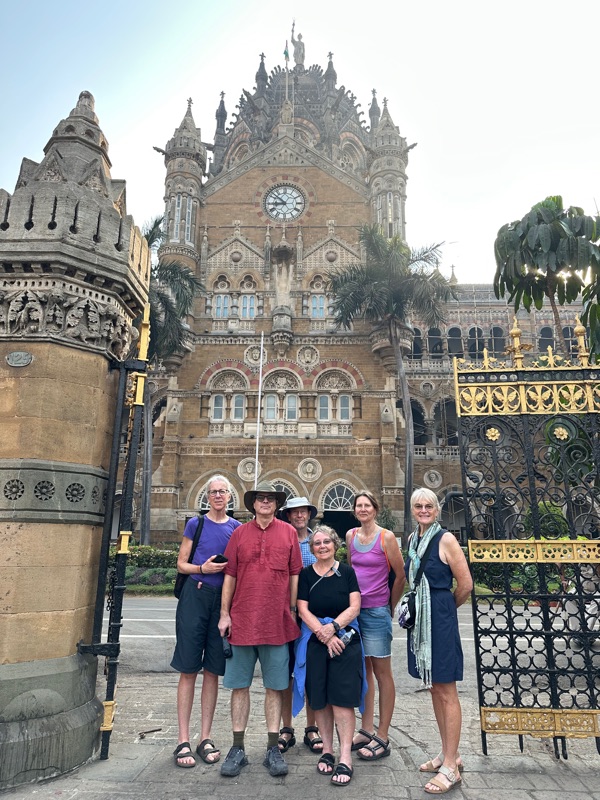
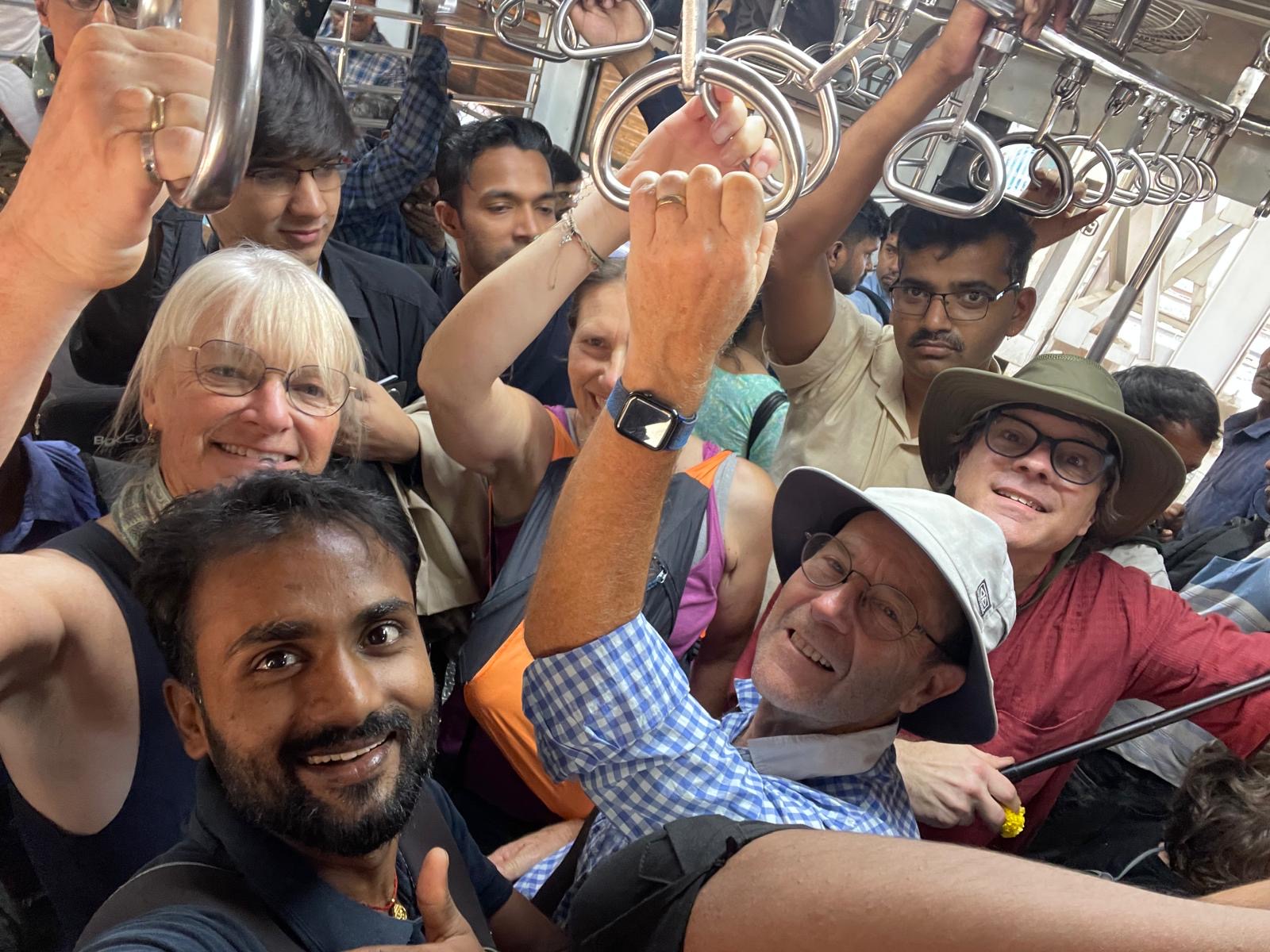
Next stop the Dadar flower market.
In India, flowers are used everywhere – in temples, in taxis, at home, in women’s hair, and for all kinds of worship.
Beautiful flowers everywhere. Mostly men are stringing the flowers to be used for weddings, rituals and festivals. The flowers are purchased and usually last for 8 to 10 days. The Roses 🌹 actually SMELL like roses, and the various other flowers are used for specific reasons, like to tie around the woman’s wrist to have a scent with it.
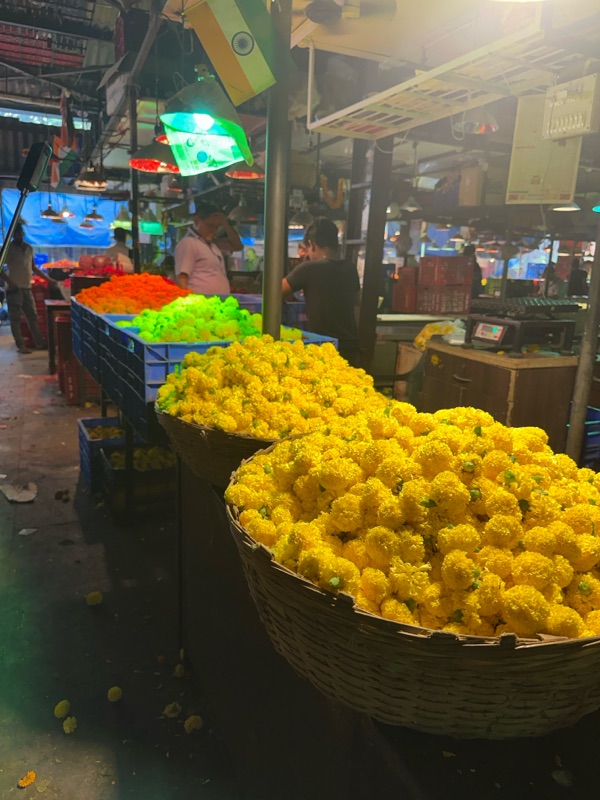
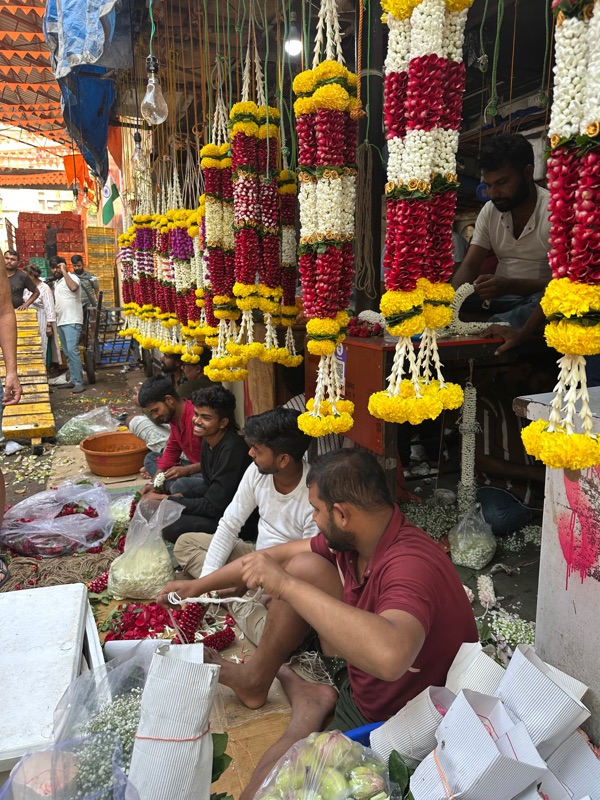
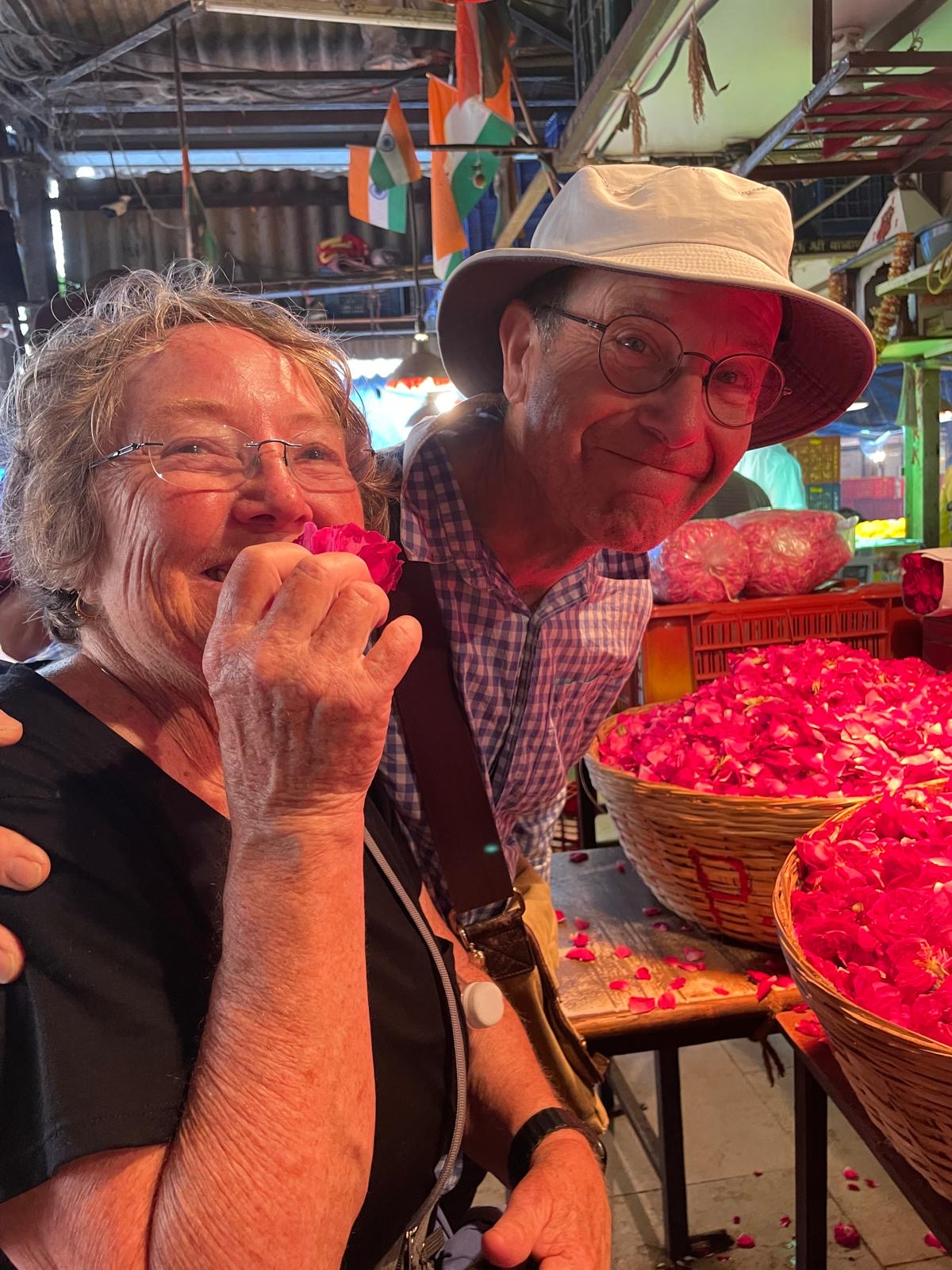
Next stop the world’s largest laundry the Dobhi Ghat
The world’s largest outdoor laundry! See the dhobiwallahs, or washermen, scrubbing sheets from Mumbai’s largest hospitals and hotels at this busy outdoor laundry area.
Originally the laundry was built by the British to wash the military’s laundry. After independence, the laundry was taken over by the locals.
Men do the laundry and women take care of the children and cook the meals. These are family businesses and each family lives in the laundry. The laundry caste is the Dhobi, although this is not strictly held to now in modern times and they can also become educated, become Dr’s and professionals, etc.
100,000 items are washed daily coming from all over the city of Mumbai. To keep track of the laundry, it’s delivered in bags, and a tag is put on each item.
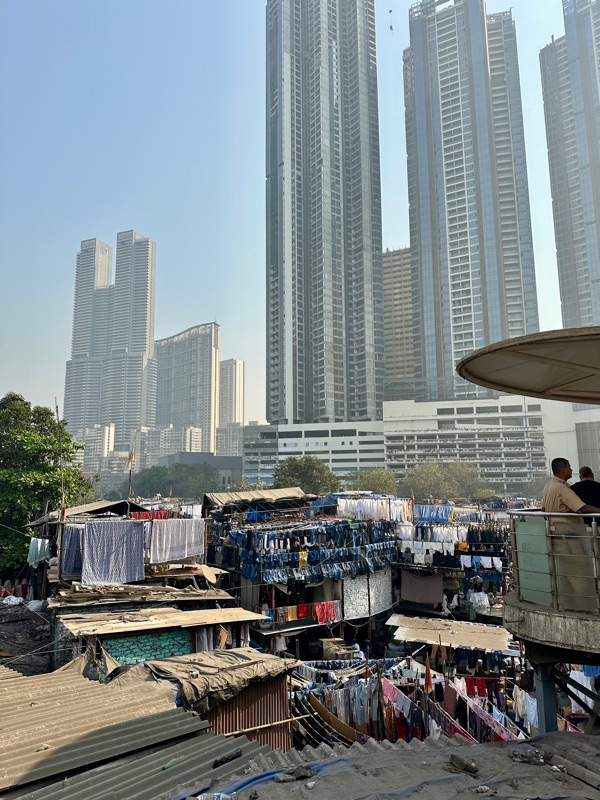
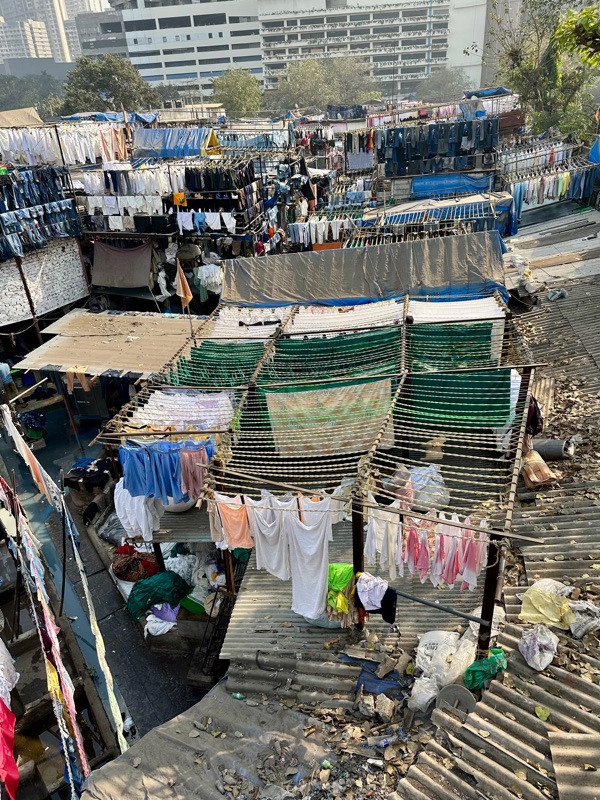
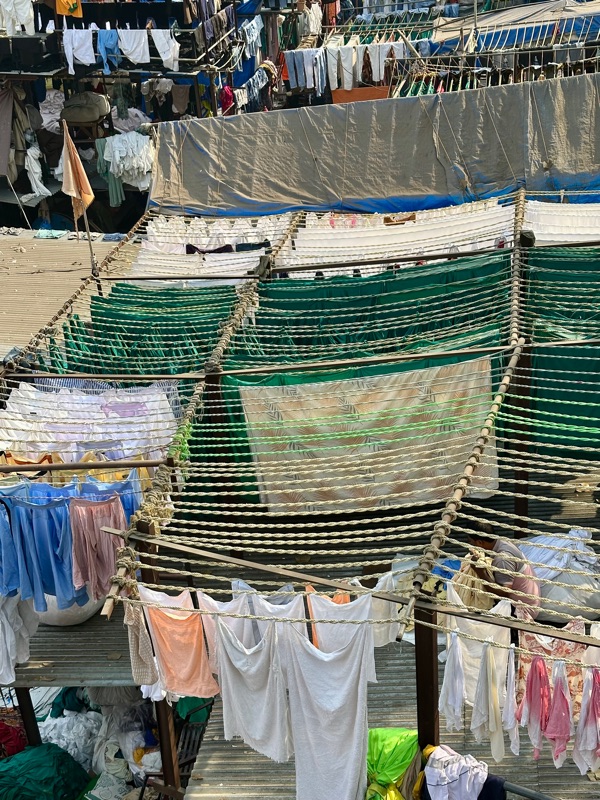
No clothespins are used, they use twisted rope to hold the laundry in place to dry on the line.
Witness an extraordinary feat of organization in which hundreds of thousands of lunches are collected from homes and delivered to work-sites using an unwritten system.
The lunch delivery was started during the British rule because they did not like Indian food so they had their own food delivered to work every day. 100,000 lunch boxes are delivered to work every day. Women at home wake up at 4:00 am to cook and make the food to be picked up for delivery. Each Dabbawallah can carry 25-30 lunch boxes, they are paid a share of rupees each month which amounts to about 25,000 to 30,000 rupees a month in salary ($300 to $400/month). At the end of lunch, each empty container is delivered back to its original home location.
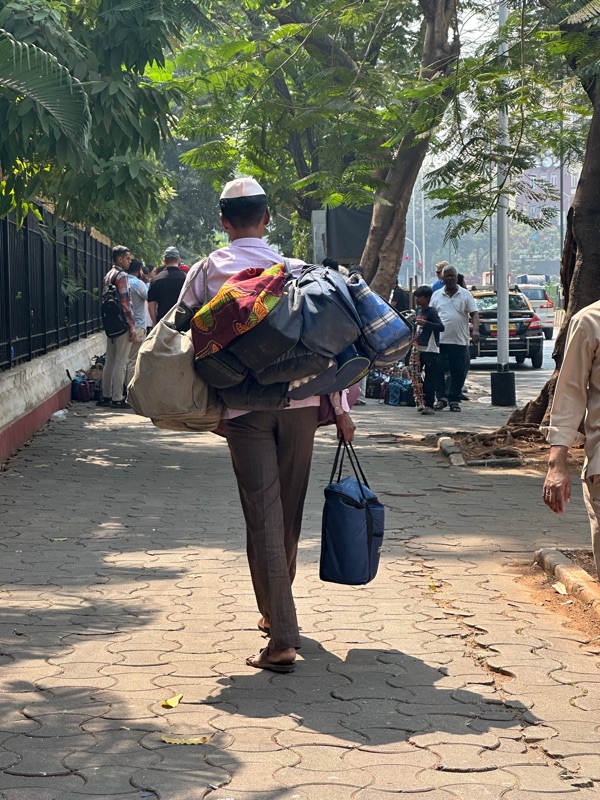
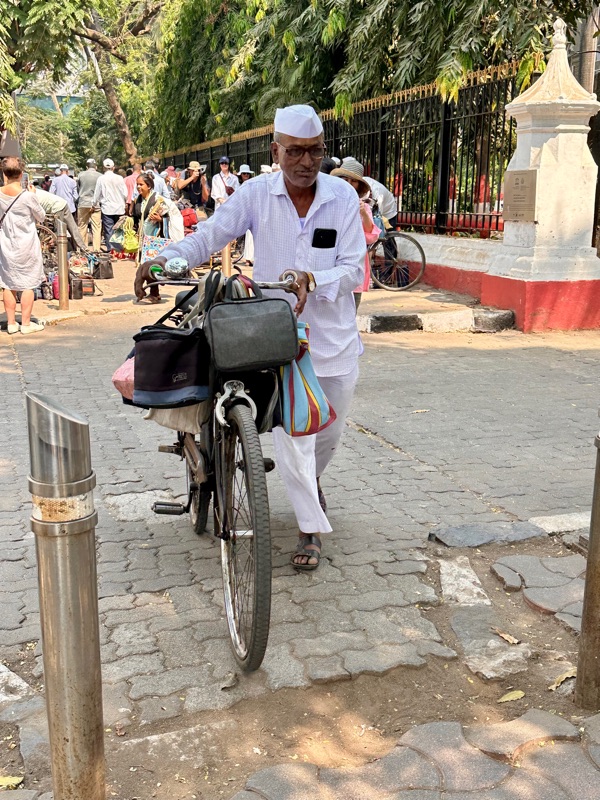
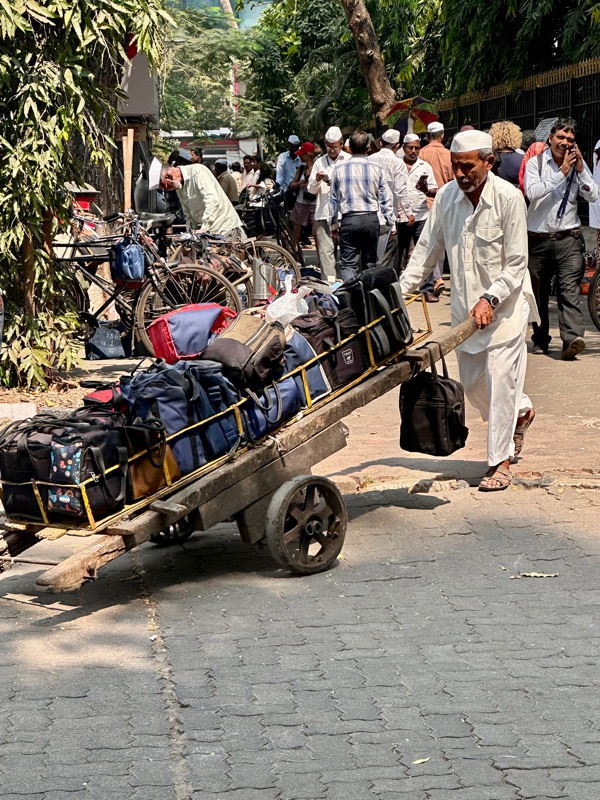
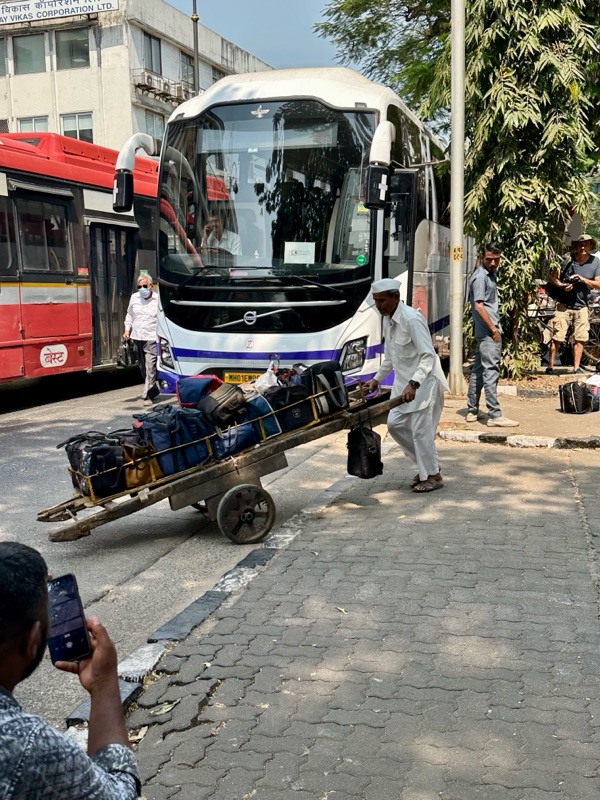


Lunch and laundry! Two big goals on any bike tour. But I've never encountered systems like this! I'm glad you haven't been squashed by a bus on the road. Don't get squashed on a train! - Bruce (trying not to be "Anonymous" this time)
ReplyDeleteHey Bruce, it’s pretty amazing when you see all the people power behind these processes!
DeleteThese are fascinating! Laundry, lunches and flowers!!
ReplyDelete